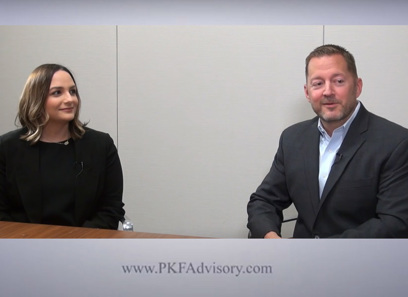M&A Outlook: Exploring the Growing Importance of Emerging Market Opportunities
M&A Outlook: Exploring the Growing Importance of Emerging Market Opportunities
Blog Article
The Impact of Mergers and Acquisitions on Market Characteristics and Competition
The landscape of acquisitions and mergings offers a complex interaction in between fostering growth and possibly threatening competitive stability within markets. As firms pursue tactical placements to enhance effectiveness and advancement, the implications on consumer option and market prices warrant mindful scrutiny. While the benefits of such loan consolidations can be evident, the darker ramifications commonly arise, raising crucial concerns concerning market power and the governing structures designed to maintain balance. This discussion welcomes an expedition of the subtleties entailed, disclosing just how these corporate maneuvers reshape the very foundations of competition.
Summary of Mergers and Acquisitions
Mergers and acquisitions (M&A) play an essential function fit the landscape of contemporary company, as companies seek to improve their competitive edge and achieve critical purposes. M&A deals include the debt consolidation of business or assets via numerous monetary transactions, consisting of mergings, where two companies integrate to develop a new entity, and procurements, where one business purchases an additional outright. These tasks are driven by a myriad of elements, such as the pursuit of harmonies, diversification of item offerings, and the wish to enter brand-new markets.
The M&A process typically entails a number of stages, consisting of tactical preparation, due diligence, arrangement, and combination (Emerging Market Opportunities). Companies carry out comprehensive evaluations to recognize prospective targets that straighten with their growth strategies and examine the financial and functional implications of a deal. Regulatory considerations additionally play a vital role, as antitrust legislations are designed to avoid monopolistic practices that might damage competition
As companies browse the complexities of M&A, the results can significantly affect stakeholders, consisting of investors, consumers, and employees. Consequently, understanding the dynamics of M&A is necessary for reviewing their implications within the broader context of market habits and affordable placing.
Favorable Effects on Market Dynamics
The loan consolidation of companies through mergers and procurements can lead to significant favorable results on market dynamics. This efficiency can convert right into lower rates for customers, fostering a more affordable market atmosphere.

Moreover, boosted market share arising from mergers can offer firms with greater bargaining power with representatives and vendors, assisting in enhanced terms that can benefit the general supply chain.
Unfavorable Consequences for Competitors

Furthermore, the elimination of competitors with purchases can stifle development. When principals merge, smaller companies might battle to complete, bring about a homogenization of services and products. The navigate to this site resultant lack of competitors can develop a setting where continuing to be business have less incentive to buy study and growth.
Moreover, mergers can create barriers to access for brand-new firms, as the merged entity might take advantage of its improved resources to control the marketplace. This can discourage potential participants, therefore limiting competition and technology in the long-term.
Eventually, while mergers and procurements can supply calculated click for source advantages, their possible to weaken competition demands cautious consideration of their more comprehensive ramifications on the market characteristics. The balance in between growth and affordable stability remains an essential issue in evaluating such company techniques.
Governing Considerations and Oversight
Governing frameworks play a crucial function in shaping the landscape of purchases and mergers, ensuring that market dynamics remain affordable and reasonable. These frameworks are made to avoid anti-competitive actions and to shield consumer passions. Regulatory bodies, such as the Federal Profession Commission (FTC) in the United States and the European Payment in the EU, evaluate suggested purchases and mergings based on their prospective influence on competitors within the market.
The evaluation procedure entails an extensive investigation of the market share, possibility for monopolistic techniques, and the overall economic ramifications of the purchase. Regulatory authorities typically enforce problems or call for divestitures to mitigate issues over minimized competitors, ensuring that the merged entity does not dominate the market unfairly.
This collaborative approach helps to cultivate a well balanced regulative environment that promotes technology while guarding affordable methods. Ultimately, reliable governing considerations are important in maintaining market honesty and motivating healthy competitors in the face of progressing company landscapes.
Study and Real-World Instances
Frequently, study of noteworthy mergings and purchases illustrate the extensive effects these purchases can have on market dynamics. The 2000 merging between AOL and Time Detector serves as an archetype, where the expected harmonies failed, leading to a radical decline in investor value. This situation underscores just how cultural imbalances and overestimation of market potential can interfere with competition.
On the other hand, the acquisition of WhatsApp by Facebook in 2014 exhibits an effective combination that improved the communication landscape. Emerging M&A Outlook for 2025 Market Opportunities. Facebook leveraged WhatsApp's customer base to enhance its service offerings, properly enhancing its market prominence while maintaining competition in the messaging field
Another considerable instance is the merger of Exxon and Mobil in 1999, which produced among the world's largest oil firms. This consolidation caused better efficiencies however elevated concerns regarding lowered competitors in the energy market, triggering regulative analysis.
These instances highlight the intricate interaction in between mergings and acquisitions and market dynamics, showcasing both the potential benefits and pitfalls that can arise, ultimately shaping affordable landscapes throughout sectors.
Verdict
Mergers and acquisitions play a pivotal duty in forming market dynamics and competition. While they can lead to increased efficiencies and development, they also posture risks such as decreased competition and higher customer rates. Reliable regulatory oversight is crucial to ensure that the benefits of M&An activities are optimized while mitigating adverse effect on market competition. A well balanced approach can aid preserve consumer welfare and foster a competitive landscape that urges both growth and innovation.
One significant problem is the capacity for minimized market competitors, as mergers usually lead to the loan consolidation of market power amongst fewer players. Regulatory bodies, such as the Federal Trade Compensation (FTC) in the United States and the European Commission in the EU, examine recommended procurements and mergers based on their possible influence on competitors within the market.

Mergers and procurements play an essential function in shaping market characteristics and competition. Effective governing oversight is important to guarantee that the advantages of M&An activities are made the most of while alleviating adverse effects on market competitors.
Report this page